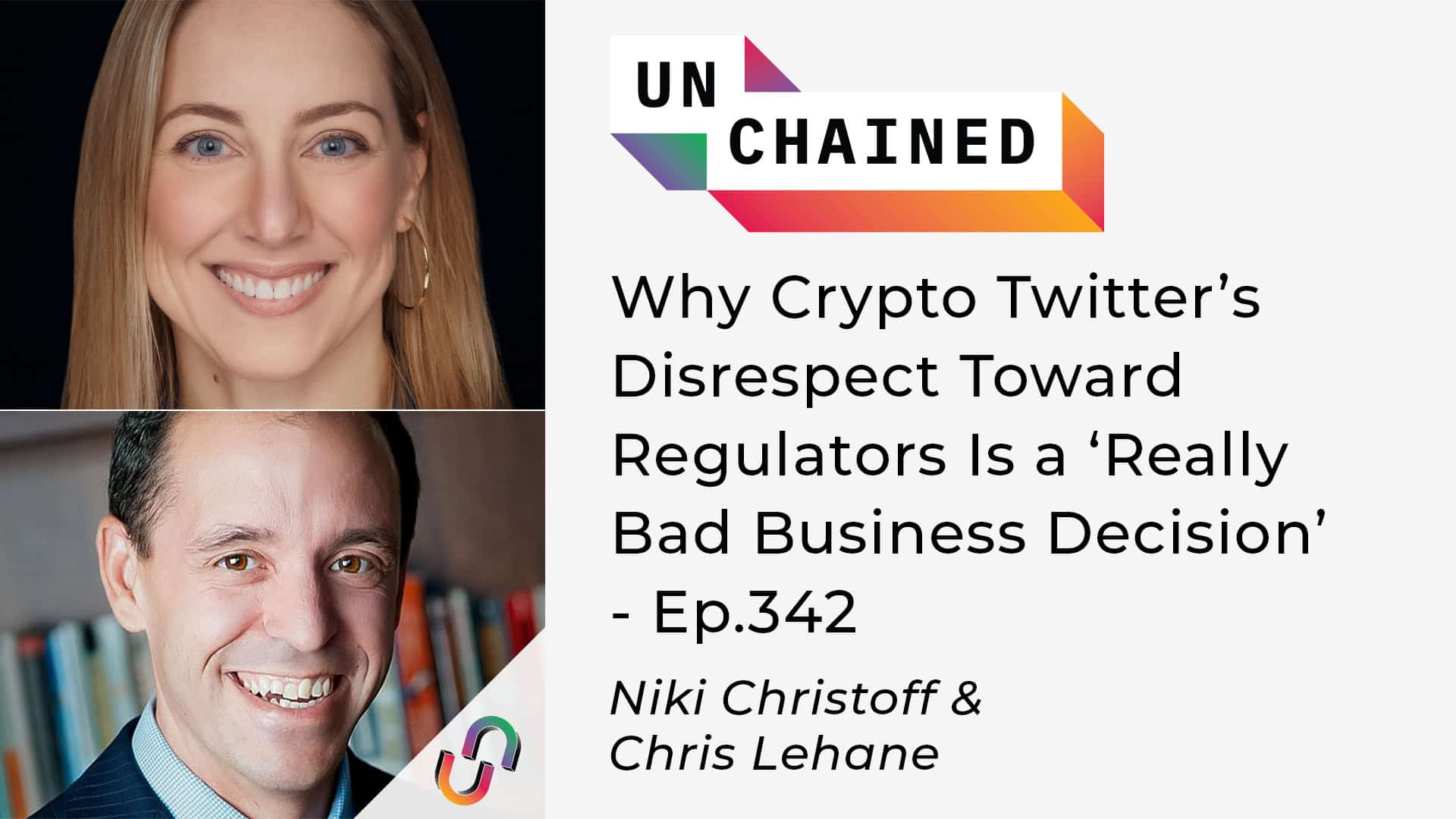Two policy experts, Chris Lehane, chief strategy officer at Haun Ventures, and Niki Christoff, the founder of Christoff and Co., discuss how the crypto industry has performed in Washington and how it can better educate more regulators and politicians about the technology. Show highlights:
- Niki and Chris’ background
- how Niki and Chris would grade the performance of crypto companies in Washington
- what parallels Chris can draw between crypto in the 2020s and FAANG in the mid-90s
- whether having a plethora of crypto policy groups helps or hurts crypto in Washington
- whether calling politicians and regulators names and making memes of them helps or hurts the crypto industry
- an effective way crypto companies can prompt lawmakers and regulators to prioritize crypto policy
- why it can be strategically smarter to try to convince incumbents to adopt pro-crypto policy over supporting challengers
- why Chris thinks crypto could be a bipartisan topic
- what Chris and Niki think about the fact that Democratic candidates received more donations from people working in the crypto industry than Republicans did
- the three types of crypto users that are valuable to political candidates
- what Niki and Chris would tell Senator Elizabeth Warren about crypto if they were to meet with her today
- what effect crypto might have on midterms
- why the terminology native to crypto may have to change
Unchained is hiring!
Find out information on the three openings at Unchained and how to apply here:
- part-time remote social media marketing manager: https://unchainedpodcast.com/seeking-part-time-remote-social-media-and-marketing-manager/
- part-time remote editorial assistant: https://unchainedpodcast.com/seeking-remote-editorial-assistant/
- part-time remote video/audio producer: https://unchainedpodcast.com/seeking-part-time-remote-video-audio-producer/
Announcing The Cryptopians Book Clubs!
On April 26th, I will be selling NFT tickets to five 90-minute virtual book clubs in which 22 people can discuss “The Cryptopians” with me and with each other — without worrying about spoilers! Two of the book clubs will also feature special guests.
The sale will go live on Tuesday, April 26, at 1pm ET/10am PT, and tickets will be $100 each. (The sale will be on Bitski, but the NFTs will not be visible until the sale goes live on the 26th): https://www.bitski.com/@laurashin/created
Here is the schedule:
- Monday May 2, at 8pm ET/5pm PT with Laura Shin
- Tuesday, May 3, at 7pm CET/1pm ET/10am PT with guests Christoph Jentzsch, Lefteris Karapetsas, and Griff Green
- Thursday, May 5, at 6pm CET/12pm ET/9am PT with Laura Shin
- Monday, May 9, at 6pm CET/12pm ET/9am PT with guest Andrey Ternovskiy
- Tuesday, May 10, at 9pm CET/3pm ET/12pm PT with Laura Shin
If you’d like to participate, be sure to mark your calendars for the sale time on April 26th. Hope to see you in one of the book clubs!
Thank you to our sponsors!
Crypto.com: https://crypto.onelink.me/J9Lg/unconfirmedcardearnfeb2021
Beefy Finance: https://beefy.finance
Cross River Bank: https://crossriver.com/crypto
Galaxis: https://galaxis.xyz/
Episode Links
Chris Lehane
- LinkedIn: https://www.linkedin.com/in/chris-lehane-2562535/
- Twitter: https://twitter.com/chrislehane
- Joining Haun Ventures
Niki Christoff
- LinkedIn: https://www.linkedin.com/in/nikichristoff/
- Twitter: https://twitter.com/NikiChristoff
Miscellaneous Links
- Overview of crypto and politics
- Biden’s executive order
- Thread of official statements: https://twitter.com/crypto_council/status/1501606327621197835
- Fact sheet: https://www.whitehouse.gov/briefing-room/statements-releases/2022/03/09/fact-sheet-president-biden-to-sign-executive-order-on-ensuring-responsible-innovation-in-digital-assets/
- Overview: https://www.cnbc.com/2022/03/09/heres-whats-in-bidens-executive-order-on-crypto.html
- New bill from Senator Warren to crack down on sanctions evasion:
- DeFi Education Fund
- Blockchain Association
- Crypto Council for Innovation
Read the episode transcript here



